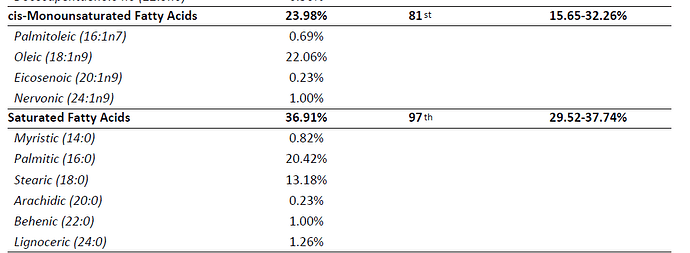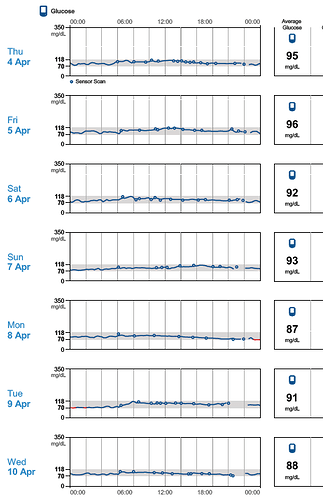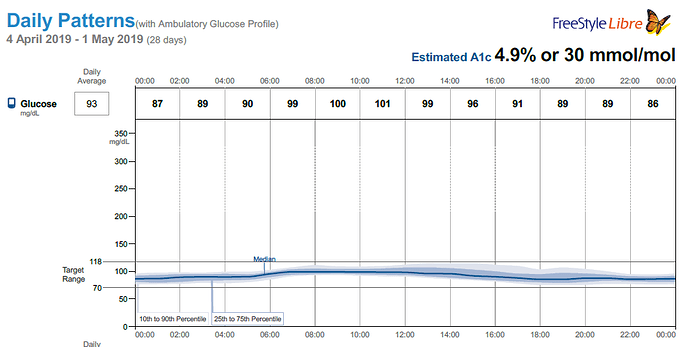Since apparently both my brain cells lack the discipline for this dietary strategy – my knee-jerk resistance to starch in almost any form, a lack of meal plans that involve the primary (stearic) ingredient I’m supposed to be ingesting, a tendency to eat high-carb items once in awhile if I don’t have a set carb limit – I am shifting my eating plan starting this Sunday.
I’m planning to do what I consider something of a maintenance plan for now even though I do want to lose fat and I do want to reduce PUFA in my tissues. But I also do want to start some serious exercise.
It is lowcarb with three exceptions (which means it is not ketogenic – most days, anyway, it will be sometimes by accident): some beans; some corn tortillas; and non-fruit, non-starch produce (mostly what works well in chili, tacos, or stir-fry). I hope having plenty of these will keep the gut-biome happier.
I’ve worked hard on kefir (both water and milk) during this time, mostly needing lots of carbs to ingest them, but I do believe they help. With fiber like beans and peppers, it certainly improves my overall digestive output. I’ve put the kefirs into storage for a few months. I am usually off lowcarb from 11/21 (my dad’s birthday or Thanksgiving whichever comes first) until day after Christmas (and then often fast 12/26 to morning of 1/2) so I will resume kefir then.
Usually I’m obsessive about tracking, but this time I’m going to try not tracking anything except making sure, as a generality I can fathom from common foods and well known counts, is loosely >150g+ pro and ~<80g ecc. The only fats I will be adding though is the coconut oil I cook in, a little grassfed butter in chili now and then, my O3 supps, and maybe tiny cocoa butter + cocoa molded things to drop in coffee (rarely). I hope it won’t end up low calorie.
My plan is to focus on exercise, and see if maybe restoring some LBM eventually will have some effect on metabolism. Either way I need to focus on fully restoring my body as a primary… the last couple months were pretty great for my gut, muscles next.
But as influenced by my interest in this topic and eating plan, I think I might sometimes take some of the supplements I got for it. And I’m still hoping, around end of year, to take another of the Omega Quant blood tests out of curiosity.
As for the results of doing this REALLY BADLY (so it’s pretty unfair for me to represent it):
I was around 349 (a bit higher than I’d been prior) when I added carbs to my diet so that whenever I began the starch and stearic approach, if I gained weight, I wanted to know it was from that, not simply from the adding of carbs. The heavier I am, the more water weight I carry (at one point about 42#, now usually about 22# or so).
After a few weeks eating carbs, I was 371.5 which is what I expected for the water weight.
I shifted to S&S on 6/22. I did it well for 2 weeks, then varied between “badly” and “not at all” for the next 7 weeks.
Current weight: 370.5. So I did not gain anything. I had periods where my water weight was higher (I could feel the body results) but it seems to have been one of the half-dozen things that make my water weight vary quite a bit.
Sunday I shift, and so after a couple of weeks I will weigh again. My water weight should drop probably about half of it, some will remain because I won’t be ketogenic more than briefly/occasionally. Plus I will be adding some inflammation from exercise stress.
I will say this: prior, in my life since 2004, any time I have shifted to eating carbs, even not a lot, I have gained weight at the speed of light. One time I had a graph of my time on lowcarb and off lowcarb for about 10 years, and seriously it looked like a mountain range. Straight diagonals up and down. Eating carbs was a nightmare for me.
I think really long term low carb, and possibly that I’ve gone off it for holidays and back on again regularly for years, has just created a vastly better insulin handling in my body.
Eating a lot of carbs for seven weeks has reduced that a little though. I’m starting to get a degree of blood sugar drops I did not initially, either from high carbs or from a big meal, and haven’t had that in eons.
That however is my issue, not one of the eating plan. I could have done it on keto if I wanted to. Anybody could. So I don’t think it would be fair to say the diet makes you gain weight so much as, some people if they choose to do the diet to include starch – which is obviously a big focus of Brad’s, but he says in multiple places, not required – that doesn’t work for everyone.
My new approach starting Sunday will continue the avoidance of PUFA – pork and mayo and any chicken except breasts. Those were the only things that had much of it in my diet anyway and I didn’t eat those commonly. I might allow myself a little bacon twice a year or something like junk food is all.
This really won’t change my diet much from what it is right now, except that it will increase my food and specifically protein intake, and reduce my carb and sugar intake.
But there will be zero starch involved. And aside from bits of cocoa butter things in coffee I probably won’t be intaking stearic.
PJ





